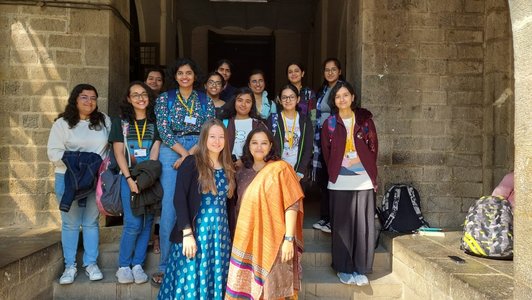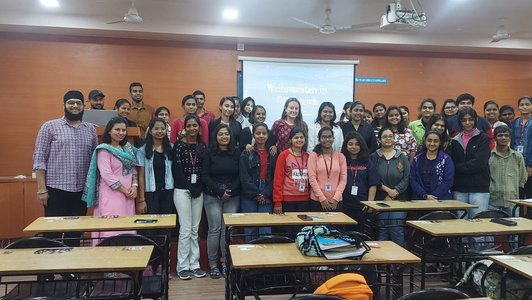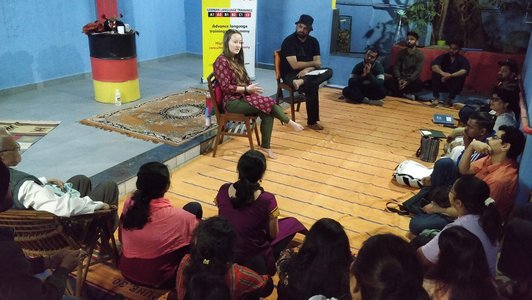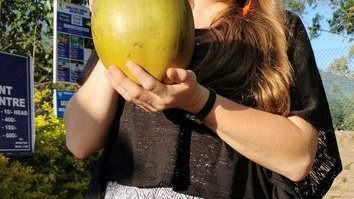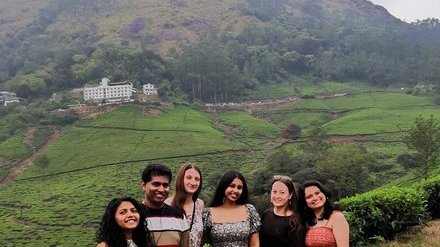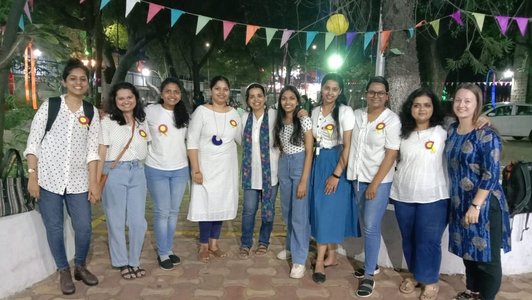

Margarita about her internship in Pune
When I first heard about the German as a Foreign Language internship I had just returned from abroad and my family and friends had made me promise to stay in Austria for a while. But when the internship abroad was introduced at the beginning of my master’s programme a spirit of adventure immediately took hold of me and I knew that I didn't want to miss out on this opportunity. When do you ever get the opportunity to spend a few months in another country, to get to know the country and its people – and all this even fully financed by a scholarship?
I think that in terms of cultural exchange the German as a Foreign Language internship abroad is a perfect intermediate thing between a holiday trip, which by definition remains rather superficial, and a lectureship, which lasts at least a year and involves more organisational effort and responsibility. An internship can be a good preparation for such a lectureship. There is an immense variety of locations and I was particularly attracted by the fact that the list includes many unusual places. This encourages experiencing cultural difference first-hand in a completely unfamiliar environment.
“Do you eat non-veg?”
India is a country that I not only wanted to travel to but to get to know more in depth. I was fascinated by the colours, the patterns, the clothes, the music, the diversity of religions and languages and the diversity of food. The latter means a special change of perspective: Did you know that in India vegetarianism is usually the norm and eating meat is the exception? "Do you eat non-veg?" is a normal question in India and non-vegetarian food is marked as "non-veg", not the other way round. Many restaurants are even "pure veg" and offer no meat at all. I found this completely different reality, which many people in this country don't even know about, so fascinating!
But not only in this respect but also professionally my stay was an enriching experience that opened up many new perspectives for me. It was a pleasure to get to know the extremely active and thriving German as a Foreign Language community at the university and also in the entire city. Pune is considered a "German Hub" and has an overwhelming number of interested German learners. Yet there are hardly any people there with German as their first language and, to my great surprise, hardly any people from Europe at all, which is why you are often treated as guest of honour. Everywhere you are welcomed with open arms. For example, a German language school organised an interview with me, I was invited to give guest lectures at other colleges, I got to taste food from German-speaking countries as a jury member for a cooking competition and I recorded audios for a sound studio. My own ideas and inputs were always welcome and readily accepted.
Warm welcome
There is absolutely no need to worry about meeting people. I received a very warm welcome everywhere and immediately found people who took me along to events or invited me to their homes, who explained a lot of things to me and helped me with advice and assistance when dealing with authorities, etc. A travel companion was also always on hand. Some students even took me on a trip to Kerala, where one of the (now former) MA students runs a language institute.
The enthusiasm with which the students and lecturers deal with the German language and everything connected with it is inspiring. Teaching German is not only a job for the lecturers but a passion. I perceived the teaching style (both in the language courses and in the master’s courses) as very activating and practice-oriented. Creative events and competitions are not just highlights but everyday occurrences. The creative impulses offered by all the events are impressive! It was an extremely productive, instructive and exciting few months that I was able to spend in India. I wish to thank the OeAD for this experience and hope that many more German as a Foreign Language students will be able to enjoy this privilege!
The German as a Foreign Language internship abroad is managed in terms of content and administered by the University of Vienna and funded by the OeAD from funds of the Federal Ministry of Education, Science and Research (BMBWF). It enables students with a focus on German as a foreign and second language to complete a 3-5 month internship at one of around 60 universities worldwide.
Further information is available here and on the website of the German as a Foreign Language internship at the University of Vienna.
- Next call for applications: autumn of 2023 for internships in the academic year 2024/25
- Online application: 1 December 2023 to 31 January 2024
- Available places: approx. 60



